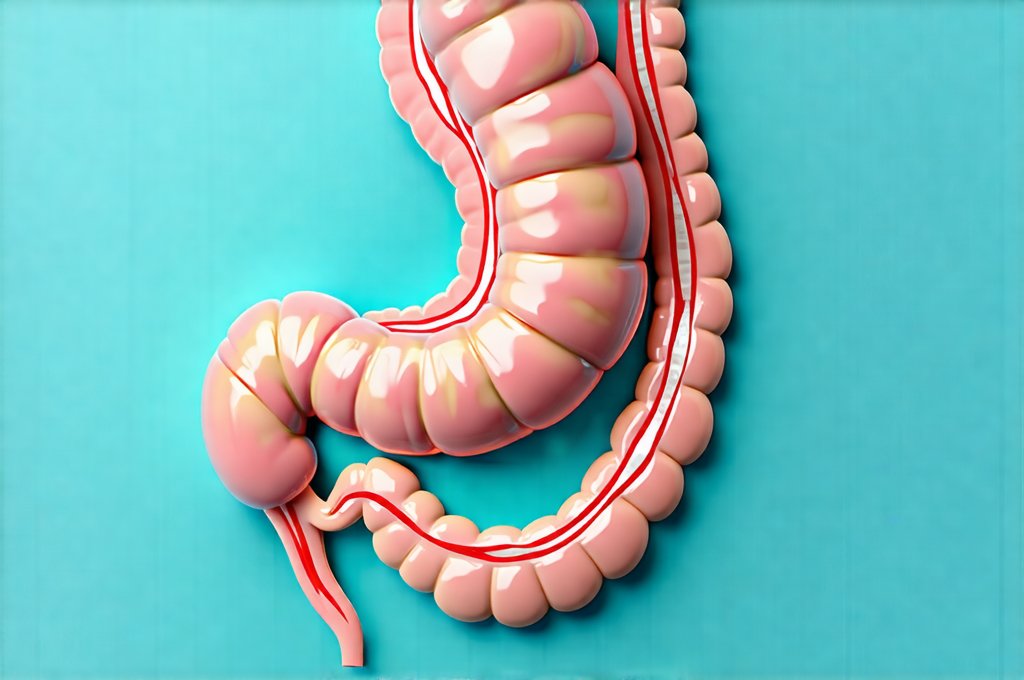Bloating – that uncomfortable feeling of fullness, tightness, and sometimes even pain in your abdomen – is something most people experience at some point. It’s often dismissed as a temporary inconvenience, perhaps from eating too much gas-producing food, or simply stress. However, for many individuals, bloating isn’t fleeting; it becomes persistent, impacting their quality of life significantly. While dietary factors and lifestyle choices certainly play a role, frequently overlooked is the profound connection between gut infections – both acute and chronic – and this persistent discomfort. Understanding how these infections can disrupt the delicate ecosystem of your gut is crucial to addressing the root cause of ongoing bloating rather than just managing its symptoms.
The gut isn’t merely a digestive tract; it’s a complex environment teeming with trillions of microorganisms, collectively known as the gut microbiota. This diverse community plays a vital role in everything from nutrient absorption and immune function to mental wellbeing. When a disruptive event like an infection occurs, it can throw this intricate balance off kilter, leading to inflammation, altered motility (how quickly food moves through your system), and ultimately, persistent bloating. It’s important to remember that infections aren’t always dramatic events; they can be subtle, even unnoticed, yet still leave a lasting impact on gut health. Identifying the potential link between past or present infections and chronic bloating is often key to finding effective long-term relief. If you suspect your GERD might contribute, explore esophageal strictures.
The Gut Microbiota & Infection: A Disrupted Ecosystem
The composition of your gut microbiota is uniquely yours, shaped by factors like genetics, diet, environment, and medication use – particularly antibiotics. A healthy gut boasts a diverse range of bacterial species, working synergistically to maintain homeostasis. However, an infection, whether caused by bacteria (like E. coli or Salmonella), viruses (like norovirus or rotavirus), or parasites (like Giardia), can significantly disrupt this balance. This disruption isn’t just about killing off ‘bad’ microbes; it’s often about the collateral damage to beneficial bacteria and the subsequent overgrowth of opportunistic organisms.
- Infections trigger inflammation, which further alters the gut environment.
- Altered motility caused by infection can lead to both constipation and diarrhea, exacerbating bloating symptoms.
- The loss of microbial diversity weakens the gut’s ability to properly digest food, leading to fermentation and gas production.
This imbalance, known as dysbiosis, is a hallmark of many chronic digestive issues, including persistent bloating. Furthermore, infections can sometimes lead to “leaky gut” – increased intestinal permeability – where the barrier between your gut and bloodstream becomes compromised allowing undigested food particles and toxins to enter circulation triggering immune responses and systemic inflammation that contribute to ongoing discomfort. Even seemingly mild or resolved infections can leave a lasting legacy of dysbiosis if not addressed proactively. If acid reflux is playing a role, consider hoarseness and sore throat.
Post-Infectious IBS & Bloating
A significant number of people who experience persistent bloating after an acute gut infection develop what’s known as post-infectious irritable bowel syndrome (PI-IBS). While the exact mechanisms are still being researched, it’s understood that infections can leave a lasting impact on gut function and sensitivity. The immune system, activated during the initial infection, can become hypersensitive in the aftermath, reacting to normal gut contents as if they were threats. This leads to increased visceral hypersensitivity – an exaggerated perception of pain and discomfort in the gut.
PI-IBS often manifests with symptoms very similar to traditional IBS, including abdominal pain, bloating, changes in bowel habits (diarrhea, constipation, or alternating between the two), and fatigue. However, unlike traditional IBS which may have a more gradual onset, PI-IBS has a clear trigger: a preceding gut infection. The severity of the initial infection doesn’t necessarily correlate with the development of PI-IBS; even mild infections can sometimes lead to long-term symptoms. Identifying this connection is crucial for targeted treatment and management strategies. If you’re also experiencing ear discomfort, look into ear pain or fullness.
Understanding Small Intestinal Bacterial Overgrowth (SIBO)
Small intestinal bacterial overgrowth (SIBO) is a condition where there’s an excessive amount of bacteria in the small intestine, which should normally have relatively low bacterial counts. Gut infections can contribute to SIBO in several ways. Firstly, infections can damage the migrating motor complex (MMC), a wave-like muscle contraction that sweeps undigested food and bacteria from the stomach and small intestine, preventing overgrowth. If the MMC is impaired, bacteria can proliferate unchecked. Secondly, structural abnormalities or anatomical issues, sometimes arising as a consequence of chronic inflammation following an infection, can create areas where bacteria accumulate.
SIBO often leads to excessive gas production during fermentation, resulting in significant bloating. The type of gas produced (hydrogen, methane, or hydrogen sulfide) can influence the specific symptoms experienced. Diagnosis typically involves breath testing to measure levels of these gases after consuming a specific substrate. Addressing SIBO requires a multi-faceted approach including dietary modifications, herbal antimicrobials (under professional guidance), and strategies to restore MMC function. It is important to note how skipping breakfast can worsen symptoms.
The Role of Gut Inflammation
Even after an infection appears to have resolved, low-grade chronic inflammation can persist in the gut lining. This ongoing inflammation is fueled by dysbiosis, leaky gut, and the continued activation of the immune system. Inflamed tissues are more sensitive and prone to discomfort, contributing significantly to bloating and abdominal pain. Inflammation also disrupts normal digestive processes, leading to malabsorption and further exacerbating symptoms.
- Dietary triggers can exacerbate inflammation in a compromised gut.
- Stress and lack of sleep can worsen inflammatory responses.
- Restoring gut barrier function is essential for reducing inflammation.
Managing gut inflammation often involves dietary changes focusing on anti-inflammatory foods (like fruits, vegetables, and omega-3 fatty acids), stress management techniques, and potentially supplementation with nutrients that support gut healing, such as L-glutamine or zinc. It’s crucial to understand that simply suppressing symptoms isn’t enough; addressing the underlying inflammation is key for long-term relief. If GERD impacts your ability to exercise, learn how it can reduce tolerance.
Dietary Strategies & Gut Repair
Diet plays a critical role in both triggering and alleviating bloating associated with post-infection gut issues. A low-FODMAP diet, guided by a registered dietitian, can be helpful in reducing fermentation and gas production during periods of acute flare-ups. However, it’s important to remember that low-FODMAP is often a temporary strategy aimed at calming the system – long-term restriction can further reduce microbial diversity.
Focusing on gut repair involves incorporating foods rich in prebiotic fibers (to nourish beneficial bacteria), probiotics (from fermented foods or supplements), and nutrients that support gut barrier function. Gradually reintroducing fiber-rich foods after a period of low-FODMAP is crucial. Staying well hydrated, chewing food thoroughly, and eating slowly can also aid digestion. While dietary changes are important, they’re often most effective when combined with other interventions like stress management and targeted therapies for SIBO or PI-IBS under the guidance of qualified healthcare professionals. Consider how to rebuild gut health after prolonged medication use.
Disclaimer: This article is intended for general informational purposes only and does not constitute medical advice. It’s essential to consult with a qualified healthcare professional for any health concerns or before making any decisions related to your health or treatment.


















